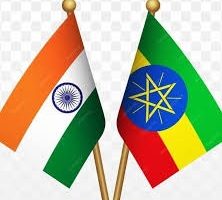
What you need to know:
The talks between the trios were halted in April 2021 after the African Union (AU) failed to resolve the long-standing dispute over the massive multi-billion Ethiopia hydroelectric dam which would be Africa’s largest upon completion.
Ethiopia last Saturday reiterated its interest in resuming talks with Egypt and Sudan over a huge and controversial dam project which is being built on the river Nile. Ethiopia’s Deputy Prime Minister and Foreign Minister, Demeke Mekonen, said the construction of the Grand Ethiopian Renaissance Dam (GERD) has reached the “final stage”.
Demeke made the remarks during a consultative forum which reviewed the implementation of the construction of the dam. “The construction of the Grand Ethiopian Renaissance Dam (GERD) has reached the final stage through the united effort of the Ethiopian people” he said.
Demeke, however, said his country is yet interested to resume the trilateral negotiation under “African solutions to African problems” approach. Ethiopia has repeatedly expressed its interest to restart the negotiations under African Union-led mediation, which Egypt is not comfortable with.
The talks between the trios were halted in April 2021 after the African Union (AU) failed to resolve the long-standing dispute over the massive multi-billion Ethiopia hydroelectric dam which would be Africa’s largest upon completion.
Failed AU talks pushed Egypt to protest at the United Nations Security Council and demand pressure through international partners on Ethiopia to halt filling the dam until a final and a binding agreement is reached between the parties.
The Ethiopian Minister’s remarks came only few days after the Horn of Africa’s nation announced that the construction of its controversial mega dam project has reached 90% completion. He further went into saying that a pre-colonial era-based treaty that benefits only one party is “not acceptable”.
By “one party” the Minister was referring to downstream countries particularly Egypt which receives a lion’s share of the Nile River’s water resources under a pre-colonial era treaty. In 1929, Egypt and Britain signed a Nile water utilization agreement which granted Cairo to receive 48 billion cubic meters of water annually and Sudan four billion cubic meters from the Nile River.
Britain signed the agreement representing East African countries namely Uganda, Kenya, Sudan and Tanzania (the then Tanganyika) Under the terms, Egypt would also not need the consent of upstream countries to undertake water projects in its own territories but could veto any projects by upstream countries on any tributaries of the Nile.
Later, Egypt and independent Sudan signed another agreement further boosting their water shares to 55.5 billion cubic meters and 18.5 billion cubic meters of Nile water per year respectively.
Both agreements totally ignored the needs of other riparian countries including Ethiopia which is a source of 85% of the Nile waters. Up to date, Cairo argues that the 1929 Anglo-Egyptian Treaty and its modified version, the 1959 Agreement, are still valid.
At the consultative meeting Chief Government Whip Tesfaye Beljige said that the “current level of the dam is a historic victory that Ethiopia has achieved despite many challenges” According to the state run Ethiopian News Agency Tesfaye pointed out that the Great Ethiopian Renaissance Dam is an African project that would connect the region through power.
Minister Demeke also stressed that the Great Ethiopian Renaissance Dam is a project that will benefit all the riparian countries. He mentioned how Ethiopians are exerting united efforts to complete the dam.
“The all-round activities to complete the dam have been supported by citizens who are leading the project and doing a proud work that will pass on to generations” the Deputy Premier and Foreign Minister stated. “This shows how capable we Ethiopians are when united,” he noted.
Cairo and Khartoum fear that the huge dam being built near the Sudanese border would eventually diminish their historic water shares from the River Nile, hence consider the Ethiopian dam a threat to their water security. They insist that Ethiopia should halt water filling operations until the parties reach a legally binding agreement with Ethiopia on the overall operation of the dam.
Addis Ababa, however, argues that the dam will not have a significant impact on the natural water flow into the downstream countries. Ethiopia, South and Egypt has been engaged in negotiations for more than a decade but the parties could not reach into a final deal. (Source: MONITER)
The Ethiopian Herald April 4/2023




